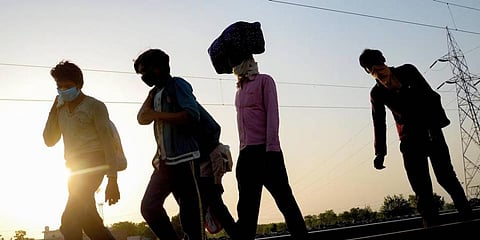

NEW DELHI: Following the lockdown, informal workers in the national capital suffered a dip of at least 20 per cent in their earnings in April as compared to February, according to the initial findings of a study by Women in Informal Employment: Globalizing and Organizing (WIEGO), an international NGO.
As part of the 'COVID-19 Crisis and the Informal Economy Study', WIEGO along with its local partners interviewed over 2,200 workers engaged in informal labour from 12 cities across the world. The study included Delhi, Ahmedabad and Tiruppur in India.
In Ahmedabad and Delhi, more than a third of the workers reported that a member of their household had gone hungry.
Access to food relief was relatively high in the three Indian cities because of the role that study participants' organizations played in facilitating it.
In Ahmedabad, 97 per cent of domestic workers, 92 per cent of home-based workers, 96 per cent of street vendors and 98 per cent of wastepickers reported zero earnings during the height of the restrictions, according to the analysis. The interviews documented that in Ahmedabad, workers reported a 95 per cent dip in their earnings in April as compared to February exposing their vulnerability. Workers in Ahmedabad borrowed money as a coping strategy.
In the aftermath of the lockdown, over half of the workers interviewed in Tiruppur said their family members had gone hungry.
A pattern that emerged from the interviews around the world was that with the drop in earnings and lack of governmental support, workers resorted to coping strategies that would signficantly reduce their ability to bounce back financially from the crisis. The interviewees said their savings were spent on paying basic bills like rent and utilities, especially electricity.
Vulnerability of workers stemmed from the lack of protective measures for them being in place.
The survey was also conducted in Ghana, Thailand, Senegal, Tanzania, South Africa, Peru, Mexico, Bulgaria and the US.